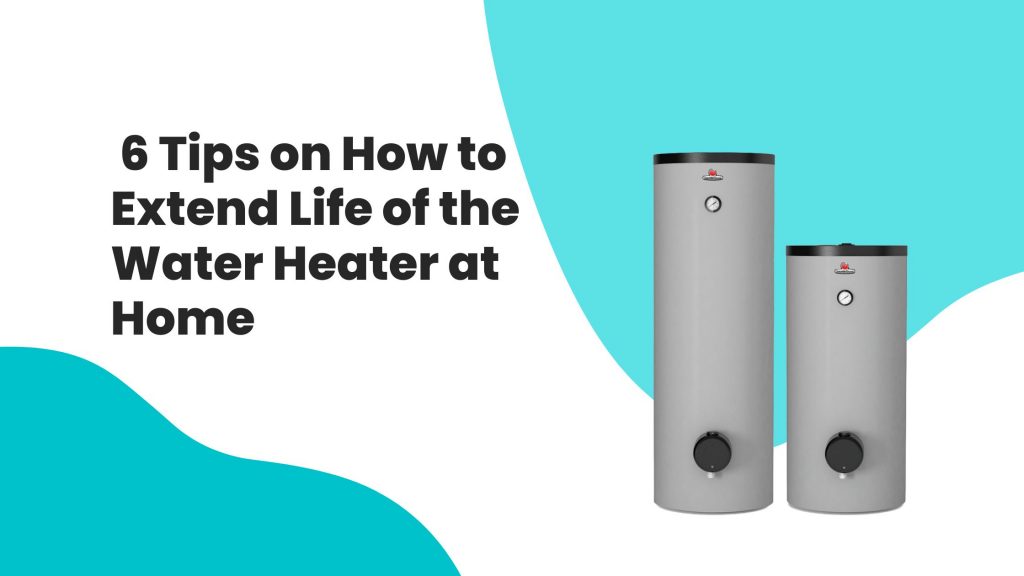6 Tips on How to Extend Life of the Water Heater at Home
There is no doubt that hot water is a primary necessity in every home. If you are not convinced, imagine starting the day or taking a shower in the middle of winter without hot water! This is why proper cleaning and maintenance of your water heater is essential to ensure that it is in good working order and will not leave you covered in suds under a spray of ice water.
Unfortunately, water heaters do not last forever. The elements will eventually burn, and the tank will rust. What can you do to extend its lifespan to protect the environment and your wallet? This is what we will see in this post.
How To Extend the Life Of a Water Heater
1. Maintain Your Water Heater
If your gas or electric water heater requires maintenance, our first advice is to have it serviced every two years by a specialized technician. This will help you keep the device in good working order and prolong its life. A service professional can immediately identify any sign of a malfunction. A professional will also undoubtedly be able to give you the best advice on how to troubleshoot the most common gas water heater problems or tell you about the electric water heater problems that require the most attention.
2. Be Aware of Any Strange Sounds or Odours
To try to understand if your appliance is working correctly, you need to pay attention to noises or smells coming from the water heater.
If your model is electric and you can hear a loud noise in the pipes when running hot water, it may mean that the device is no longer working correctly and needs further checking by a qualified technician.
However, if you have a gas water heater, you need to be very careful with any gas or burning smell in the air. This could indicate a clogged drain hose, which needs to be checked and cleaned thoroughly or caused by a nozzle that is not functioning correctly and needs to be repaired.
3. Fight Against Limestone Formation in Your Water Heater
Limestone is the biggest enemy of any water pipe! If you are wondering how to get the most out of your water heater, this is the first thing to check as scale could seriously compromise your appliance’s performance. How? ‘Or’ What? Firstly, it takes longer to heat the water, which consumes a lot more energy in the process. Also, lime presents the most significant risk to the resistance and the thermostat and can even break these parts. Appropriate cleaning is necessary in this case.
How To Clean A Water Heater?
- Cut off the power supply;
- Cut off the water supply to the house:
- Empty all the water from the water heater;
- Unscrew the flange to open the water heater;
- Disconnect the wires from the thermostat and remove the resistance to check the amount of lime deposited on the parts;
- Clean them with a cloth or sponge and an anti-lime liquid. If the lime layer on the resistance is too thick, the descaling anode may need to be replaced.
Fortunately, electric models are much more effective in preventing limescale: they are equipped with a water heater (magnesium) anode that protects against corrosion and makes it easier to remove limescale from the electrical resistance.
4. The Sacrificial Anode
You have no doubt learned that the lifespan of a water heater is between 12 and 20 years. You may also need to remember that in areas where the water content of iron, acid, or magnesium is high, your water heater will only live a luster.
If you’ve already made your choice, you will have to think about the sacrificial anode. It is found in galvanized swimming pools or on the hulls of boats. Acting by cathodic protection, it will protect your water heater against corrosion and degradation.
If you can’t afford the sacrificial anode, you’ll need to install a water softener or drain it once a year.
5. Manually Activate the Valve
The safety valve or group is the device through which water is evacuated in the event of overpressure. Every year, you should think about operating the mechanism manually. Simple but effective, this gesture will eliminate any lime or tartar that may have accumulated there.
6. Replace Damaged Elements in Your Water Heater
As you will have noticed from the beginning of this article, lime is one of your water heater’s first enemies. It harms not only the valve but also the heating elements.
For this, do not hesitate to maintain the heating elements from time to time before the limescale renders them completely useless. And if you notice that the limestone has already damaged these elements, the idea is to replace said elements.
This will prevent you from having to take cold showers while your water heater is repaired.
Contact Smile HVAC for Water Heater Maintenance
And the last thing not to be taken lightly is maintenance. As with water heater installation and replacement, its care must be done periodically and carried out by Smile HVAC. The involvement of professionals is a guarantee of quality and safety for owners, but it also helps extend the water heater’s life.




